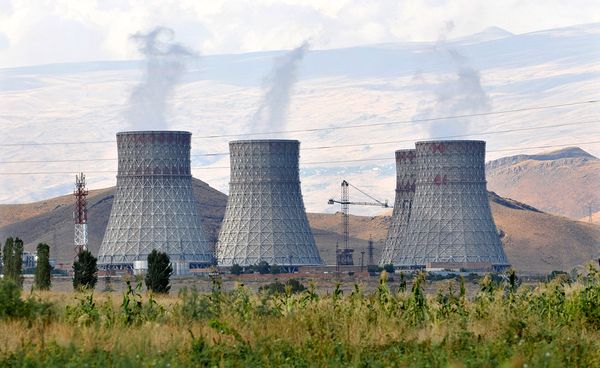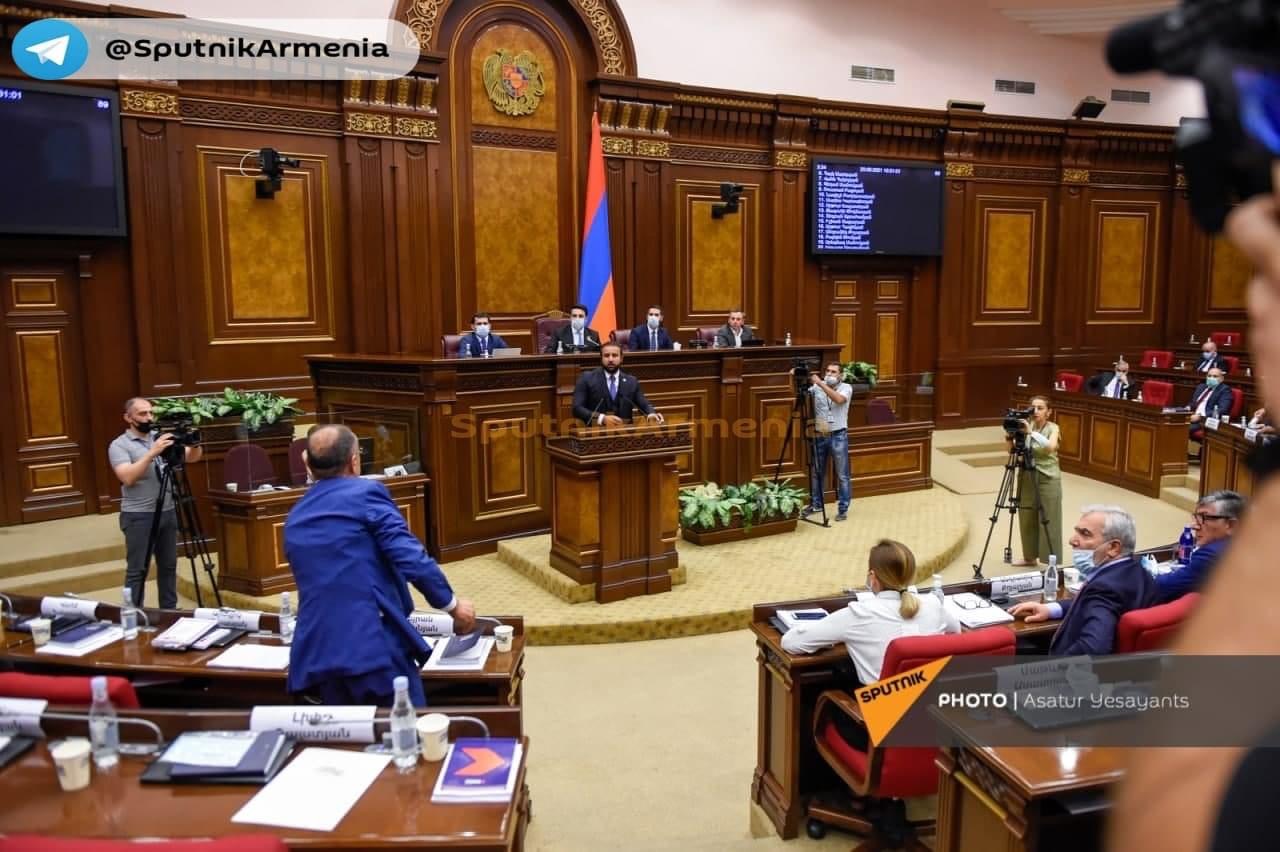Benyamin Poghosyan: Armenia–China Strategic Partnership: Another Step in Foreign-Policy Diversification
Armenia and China established a strategic partnership on August 31, 2025, at the margins of the Shanghai Cooperation Organization (SCO) summit held in Tianjin, China. The establishment of a strategic partnership with China can be seen as another step within the Armenian government’s “balanced and balancing foreign policy” or “pivot to the world,” as first articulated by the Armenia’s Secretary of the Security Council during the 2024 Applied Policy Research Institute (APRI) Armenia Forum. As part of its “pivot to the world,” a few weeks prior to the SCO summit Armenia applied for full membership of the organization (currently Yerevan is a dialogue partner) and in spring 2025, the Armenian Parliament adopted a law on launching the process of accession of the Republic of Armenia to the European Union.
“The pivot to the world” policy is a measured approach to the changing regional and global order. In recent years the South Caucasus has become an arena of overlapping and contradicting interests of regional and global powers, such as the US, Russia, China, India, Israel, France, Turkey, and Iran. In this fractured geopolitical landscape, decisive moves towards one or another camp may jeopardize the already volatile situation of Armenia, especially as Yerevan navigates the complex process of normalization with Azerbaijan and Turkey.
Establishment of a strategic partnership with China will broaden Armenia’s outreach to the Global South and expand diplomatic flexibility beyond the relations with the US and the EU. This is especially important given the growing Chinese global influence and interest in the South Caucasus as one of the land routes to connect it with Europe through the Middle Corridor. Absence of strategic partnership with China could have resulted in Armenia being excluded from Chinese investments in regional infrastructure. As Armenia puts significant emphasis on infrastructure development, seeking to become a transit and transport hub within its Crossroads of Peace initiative, Chinese investments may complement the funding from multilateral institutions, such as the International Monetary Fund (IMF), World Bank, European Bank for Reconstruction and Development (EBRD), European Investment Bank (EIB) and the Asian Development Bank (ADB), and accelerate the development of the Armenian infrastructure.
The establishment of a strategic partnership with China and Armenia’s application for full SCO membership should be assessed from several perspectives. Until August, Armenia was the only South Caucasian state holding back in its relations with China. China established a strategic partnership with Georgia in 2023 and with Azerbaijan in 2024 and elevated its relations with Baku to the level of a comprehensive strategic partnership earlier in 2025. The low level of Armenia–China relations might have created a perception in Beijing that Armenia had no interest in deepening ties with China, which might create obstacles for Armenia to attract Chinese investments in infrastructure and other areas of the Armenian economy.
The US decision to start the process of establishing a strategic partnership with Azerbaijan in August 2025, a few months after Azerbaijan launched a comprehensive strategic partnership with China, decreased the potential concerns that establishing a strategic partnership with China might irritate the Trump Administration and negatively impact Armenia–US relations.
Together with an intensive defense partnership with India, the Armenia–China strategic partnership can be interpreted by Russia and other countries as signals that Armenia is not only looking at the West but also the Global South and thus undertaking a “pivot to the world.” This perception is important as it runs counter to Russia’s concerns that Armenia seeks to become the footprint for the US and the EU to further weaken Russia’s influence in the South Caucasus. This concern has become clear based on Russian officials’ statements after the Washington Summit of August 2025.
The establishment of an Armenia–China strategic partnership should also be viewed from an economic perspective. According to official data for the January–June 2025 period, China is Armenia’s second-largest economic partner. Bilateral trade reached nearly $1.2 billion in this period, around 12.4% percent of Armenia’s overall trade turnover. Armenia has quite diversified imports from China, ranging from smartphones to electric vehicles, while it exports mostly copper and gold.
However, there are no major Chinese investments in Armenia, especially compared to Georgia and Azerbaijan. Chinese foreign direct investments in Georgia for the period of 2013-2024 reached USD 600 million, and Chinese citizens registered 1,893 companies in Georgia for the same time. In December 2016, the China-led Asian Infrastructure Investment Bank provided USD 600 million loan for the Trans-Anatolian gas pipeline, a part of Southern gas corridor which brings Azerbaijani gas to the European markets, and in April 2025, the Azerbaijani Ministry of Energy has signed several contracts with Chinese companies for the development of renewable energy and battery storage projects in Azerbaijan, totaling nearly 2.4 GW in capacity.
The establishment of a strategic partnership with China might change this situation. The Armenian minister of territorial administration and infrastructure has already stated that Armenia looks forward to Chinese investments in different sectors and that the strategic partnership will facilitate that process.
Another element in support of the Armenia–China strategic partnership is Armenia’s desire to acquire additional diplomatic deterrence tools to minimize the risk of escalation in the standoff with Azerbaijan. The emphasis on China’s firm support for Armenia’s independence, sovereignty, and territorial integrity, and for the inviolability of its borders, is significant. Respect for sovereignty, territorial integrity, and the inviolability of borders is among the founding principles of the SCO, and by applying for full membership Armenia hopes to add the SCO as an additional layer in its efforts to secure its borders and deter Azerbaijan from escalation.
APRI Armenia has been calling on the Armenian government to expand partnership with the Global South and make this an important part of its foreign policy strategy since 2024 to further cement its diversification efforts. The establishment of the Armenia–China strategic partnership and the growing attention of Armenia toward the development of cooperation with the Global South is in line with “foreign policy diversification” and “pivot to the world” concepts and will make Armenia more stable and secure.
One of the areas for Armenia-China economic cooperation can be the attraction of Chinese investments in infrastructure development – in particular the modernization of existing highways and railroads – which may contribute to the realization of Armenia’s Crossroads of Peace project. Another area for potential cooperation could be the establishment of assembly lines in Armenia for Chinese consumer products, with some Middle Eastern markets, such as Iraq, Syria, and Lebanon, serving as the primary export destinations.
Share this content:









Yorum gönder